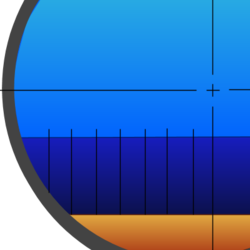HY8:LOWFLOW Method: Difference between revisions
No edit summary |
|||
| (2 intermediate revisions by the same user not shown) | |||
| Line 1: | Line 1: | ||
=Low Flow Hydraulics Method= | =Low Flow Hydraulics Method= | ||
The HY-8 Low Flow Hydraulics method is based on the [http://www.fhwa.dot.gov/publications/research/infrastructure/structures/bridge/14064/14064.pdf TFHRC report: Fish Passage in Large Culverts With Low Flow]. The method divides half of the culvert span into slices. The velocity and depth of that slice are computed, then compared to a threshold. If the slice has a velocity lower than the threshold and a depth greater than the threshold, the slice is determined to pass the requirements. For more information on this method, please see the TFHRC report listed above. | The HY-8 Low Flow Hydraulics method is based on the [http://www.fhwa.dot.gov/publications/research/infrastructure/structures/bridge/14064/14064.pdf TFHRC report: Fish Passage in Large Culverts With Low Flow]. The method divides half of the culvert span into slices. The velocity and depth of that slice are computed, then compared to a threshold. If the slice has a velocity lower than the threshold and a depth greater than the threshold, the slice is determined to pass the requirements. For more information on this method, please see the TFHRC report listed above. | ||
[[Image:CulvertCrossSectionSlices.jpg| | [[Image:CulvertCrossSectionSlices.jpg|250 px]] | ||
The ''Low Flow Hydraulics'' [[File:RunLowFlowHydraulicsIcon.png]] calculator may be used any time that there is a requirement on depth or velocity through a culvert. This method is commonly used to determine fish passage where the threshold depth and velocity relate to the swimming ability of a targeted fish. | The ''Low Flow Hydraulics'' [[File:RunLowFlowHydraulicsIcon.png]] calculator may be used any time that there is a requirement on depth or velocity through a culvert. This method is commonly used to determine fish passage where the threshold depth and velocity relate to the swimming ability of a targeted fish. | ||
==Low Flow Hydraulics Dialog== | ==Low Flow Hydraulics Dialog== | ||
The ''Low Flow Hydraulics'' dialog | The ''Low Flow Hydraulics'' dialog is a wizard with four steps as follows: | ||
* [[HY8:LOWFLOW SS Input Data|Input Reach Data]] | |||
* [[HY8:LOWFLOW SS Gradations|Gradations]] | |||
* [[HY8:LOWFLOW SS Align and Size Culvert|Align and Size Culvert]] | |||
* [[HY8:LOWFLOW SS Results Table|Results Table]] | |||
Latest revision as of 16:31, 1 December 2016
Low Flow Hydraulics Method
The HY-8 Low Flow Hydraulics method is based on the TFHRC report: Fish Passage in Large Culverts With Low Flow. The method divides half of the culvert span into slices. The velocity and depth of that slice are computed, then compared to a threshold. If the slice has a velocity lower than the threshold and a depth greater than the threshold, the slice is determined to pass the requirements. For more information on this method, please see the TFHRC report listed above.
The Low Flow Hydraulics ![]() calculator may be used any time that there is a requirement on depth or velocity through a culvert. This method is commonly used to determine fish passage where the threshold depth and velocity relate to the swimming ability of a targeted fish.
calculator may be used any time that there is a requirement on depth or velocity through a culvert. This method is commonly used to determine fish passage where the threshold depth and velocity relate to the swimming ability of a targeted fish.
Low Flow Hydraulics Dialog
The Low Flow Hydraulics dialog is a wizard with four steps as follows:
